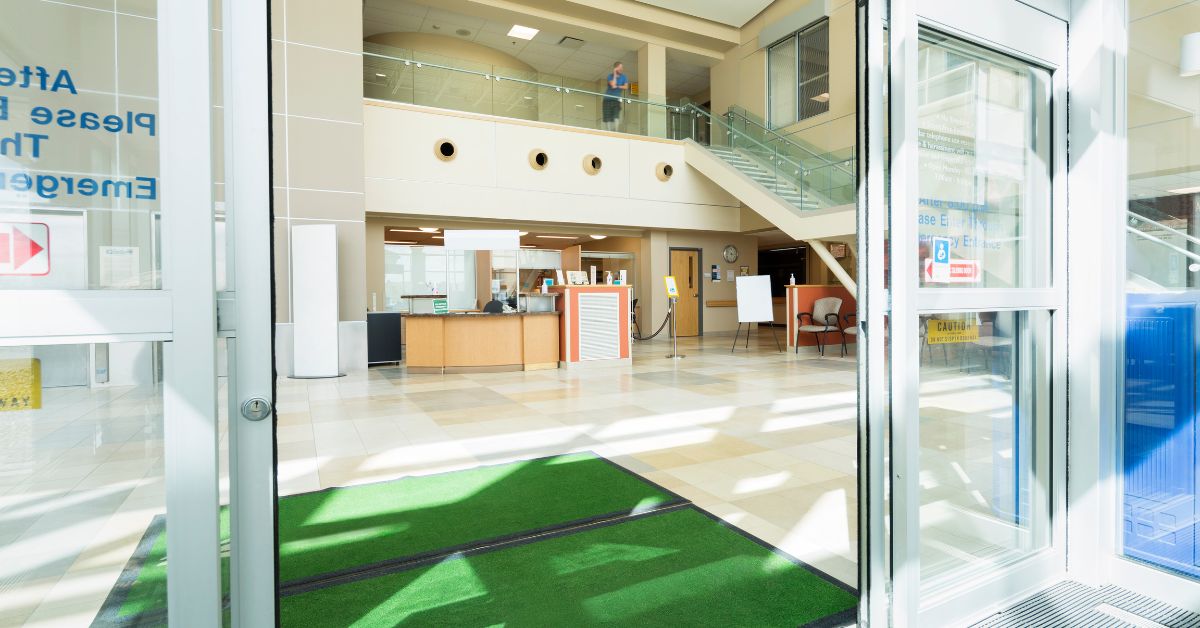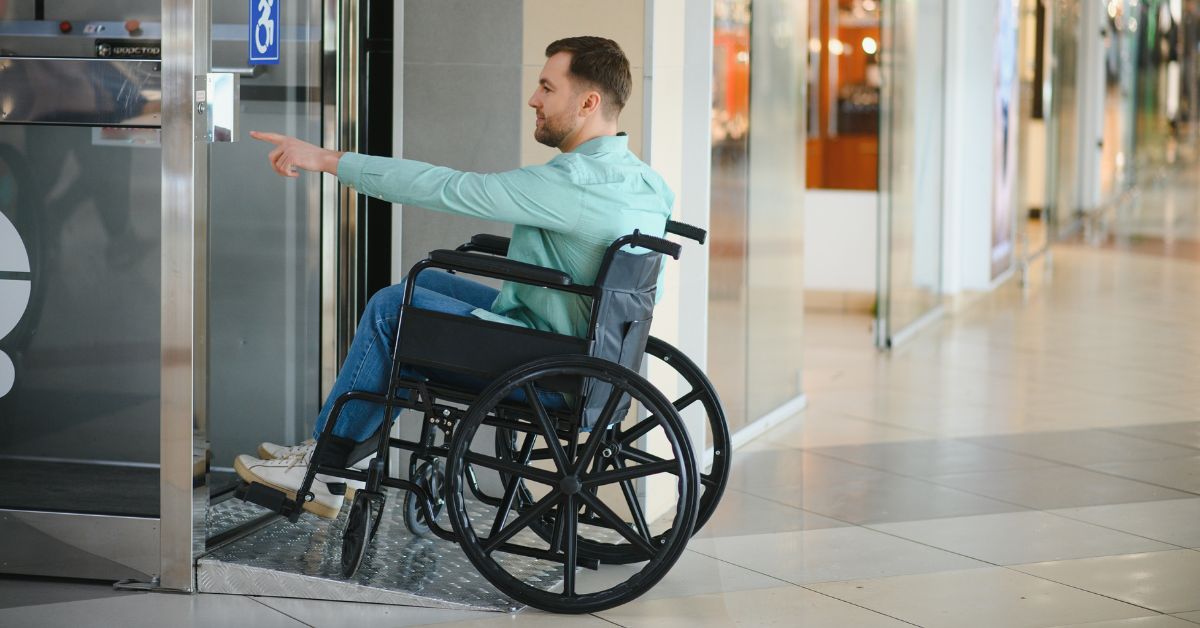The Benefits of Automatic Doors in Hospitals

Enhanced Infection Control and Hygiene
Hospitals prioritize infection prevention above all else, and the commercial door closersyou choose play a crucial role in maintaining sterile environments. Traditional doors require physical contact with handles, creating potential touchpoints for harmful pathogens. Every time staff members, patients, or visitors touch door handles, they risk transferring bacteria and viruses throughout your facility.
Conversely, automatic doors eliminate this risk. Motion sensors trigger door opening and closing without requiring any physical contact. By using this hands-free option, you can reduce cross-contamination between different hospital areas and maintain the sterile conditions essential for patient safety.
Even better, your dedicated cleaning staff will certainly appreciate the reduced need for constant disinfection. While door handles typically require cleaning multiple times per day, automatic doors minimize the number of high-touch surfaces in your facility. This reduction allows your housekeeping team to focus their attention on sanitizing other important areas.
Improved Accessibility and ADA Compliance
The Americans with Disabilities Act (ADA) requires hospitals to provide equal access to all individuals, regardless of their physical capabilities. Automatic doors help you meet these compliance requirements while creating a more inclusive environment for everyone who enters your facility.
Patients using wheelchairs, walkers, or crutches may struggle with heavy traditional doors. Automatic doors open smoothly and remain open long enough for individuals with mobility challenges to pass through comfortably. Plus, this accessibility extends to staff members transporting patients on gurneys or medical equipment through corridors.
Your facility also serves elderly patients who may have difficulty opening heavy doors due to arthritis or other conditions. With automatic doors, you can remove these physical barriers and guarantee that all patients can navigate your facility independently and with dignity.

Streamlined Traffic Flow and Efficiency
Hospital environments experience constant movement of people and equipment. By responding quickly to approaching individuals and maintaining appropriate opening times, automatic doors facilitate this traffic flow. You'll notice smoother transitions between departments and reduced congestion in high-traffic areas.
Emergency situations demand rapid movement through your facility. Automatic doors respond instantly when medical teams rush patients to critical care areas. Unlike traditional doors that might slow down emergency responses, automatic systems ensure nothing impedes urgent medical procedures.
When they don't need to stop and manually open doors while carrying medical supplies or equipment, your staff will move more efficiently throughout their shifts. With this improved workflow, you’ll contribute to better patient care and increased staff productivity.
Energy Efficiency and Climate Control
Hospitals require precise temperature and humidity control for patient comfort and medical equipment protection. Fortunately, automatic doors help maintain these controlled environments more effectively than traditional doors that staff might accidentally leave open.
Many advanced automatic door systems include sensors that minimize opening duration and frequency. Doors only open when necessary and close promptly after individuals pass through, reducing energy loss and allowing your HVAC system to maintain consistent conditions.
Over time, you'll see reduced energy costs as your heating and cooling systems work more efficiently. Also, the improved climate control protects sensitive medical equipment that requires stable environmental conditions to function properly.
Reduced Maintenance and Operational Costs
Traditional doors endure significant wear and tear from constant opening and closing throughout busy hospital days. Door handles, hinges, and closing mechanisms frequently require repair or replacement due to heavy use. On the other hand, automatic doors experience less mechanical stress because they operate smoothly without the jarring impacts associated with manual door operation.
With automatic doors, your maintenance team will spend less time on door-related repairs and adjustments. Modern automatic door systems include diagnostic capabilities that alert maintenance staff to potential issues before they cause system failures. This proactive approach reduces unexpected downtime and emergency repair costs.
While the initial investment of automatic doors may be higher than traditional doors, the reduced maintenance requirements and improved durability provide excellent return on investment.
Enhanced Security and Access Control
Hospitals must carefully monitor who enters and exists the facility. Automatic doors integrate seamlessly with access control systems, allowing you to restrict entry to authorized personnel only. To help maintain a secure environment, card readers, biometric scanners, or keypad systems work in conjunction with automatic doors.
You can program different access levels for various staff members, ensuring that only qualified personnel enter sensitive areas like operating rooms, pharmacies, or patient wards. This controlled access helps protect patients, staff, and valuable medical equipment while still keeping detailed records of facility access.
When automatic doors are connected to your security system, emergency lockdown procedures become much more effective. In these critical situations, you can instantly secure specific areas of your facility while operating normally in other zones.

Improved Patient Experience and Comfort
When patients and their families enter your facility, first impressions are everything. Automatic doors create a welcoming, modern appearance that signals your commitment to advanced healthcare services. Many patients feel anxious about hospital visits, and a smooth, effortless entry helps create a more positive initial experience.
Also, family members carrying personal items, flowers, or other belongings for patients appreciate the convenience of hands-free door operation. Elderly visitors or those with temporary injuries find automatic doors particularly helpful when navigating your facility.
The quiet operation of modern automatic doors contributes to a more peaceful hospital environment. Unlike traditional doors that might slam shut or create noise during busy periods, automatic systems operate smoothly and quietly to support a calm atmosphere that promotes healing.
Upgrade Your Facility Today
Now that you understand the benefits of automatic doors for hospitals, you can take your facility to the next level. From infection control and accessibility compliance to improved efficiency and patient satisfaction, these systems address multiple challenges that healthcare facilities face daily. However, make sure to consider factors such as traffic volume, security requirements, and integration with existing building systems when evaluating your options.
Are you ready to make the move to automatic doors? Visit Door Hub's website today to find the perfect solution for your facility.

Author
Greg Richard
Chief Technical Officer and Founding Member of DoorHub.com